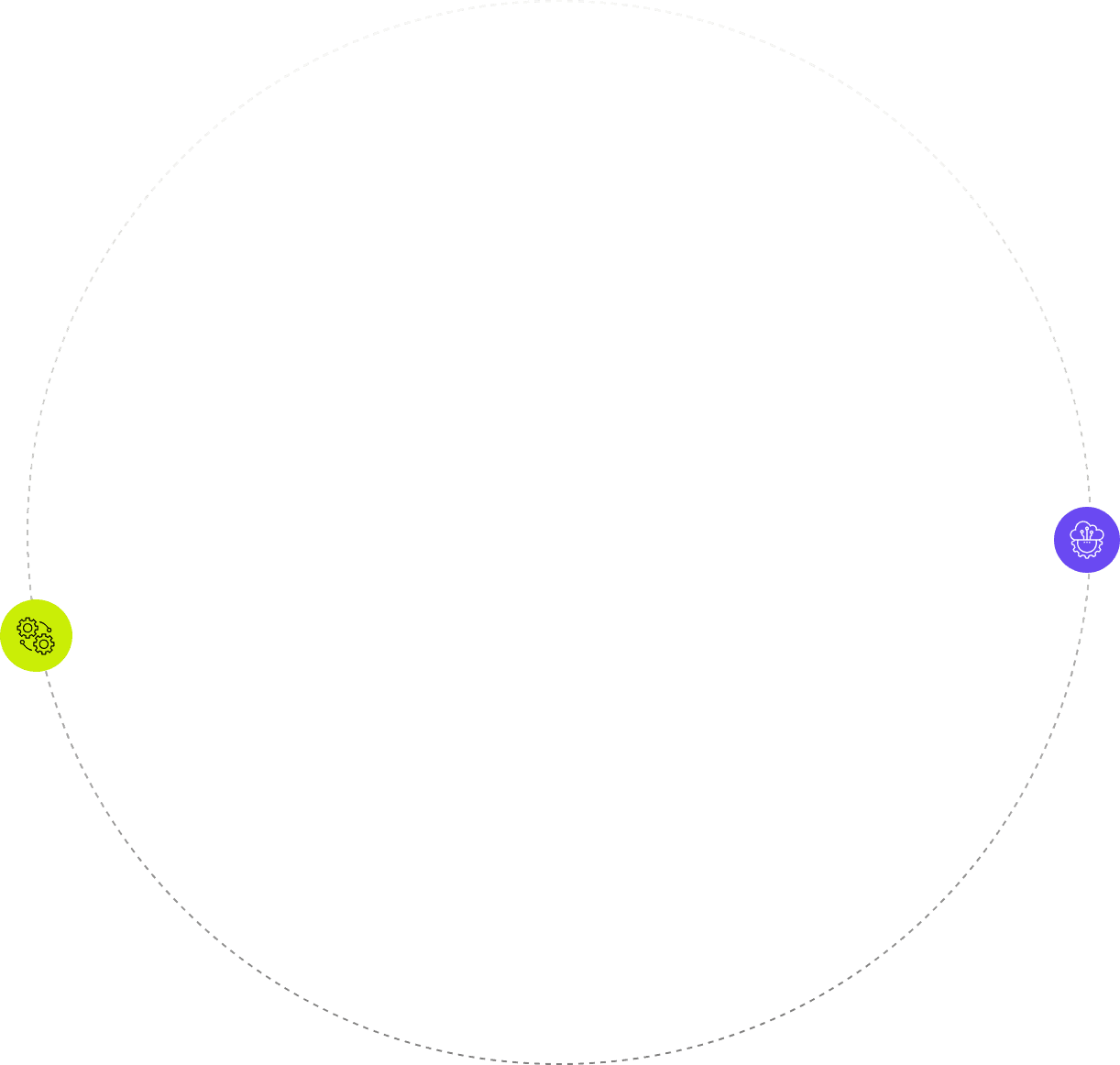Kunal Chopra
Dec 12, 2024
Navigating POPs Regulations with Proactive Compliance Strategies
The Growing Impact of Persistent Organic Pollutants (POPs) Regulations
Persistent Organic Pollutants (POPs) are more than just an environmental concern—they’re a pressing challenge for manufacturers, governments, and compliance managers worldwide. Known for their long-lasting environmental and health effects, these synthetic chemicals are a focal point for a growing body of international regulations aimed at environmental protection.
For manufacturers, the increasing significance of POPs regulations has created a need for proactive compliance strategies. Adapting to these changes not only safeguards the environment but also ensures operational efficiency, reduces financial risk, and protects brand reputation.
This blog provides a deep-dive into the world of POPs regulations, the challenges they present, and actionable strategies for compliance managers looking to stay ahead in a fast-changing regulatory landscape.
Understanding POPs Regulations
Persistent Organic Pollutants (POPs) are a class of man-made chemicals resistant to environmental degradation. They accumulate in ecosystems, causing long-term damage to wildlife, soil, and water sources. Common POPs include substances like polychlorinated biphenyls (PCBs), dioxins, and certain pesticides, many of which are tied to adverse human health effects such as cancer and hormonal disruption.
The Evolution of POPs Regulations
Global awareness of the threat posed by POPs solidified in 2001 with the adoption of the Stockholm Convention on Persistent Organic Pollutants. This international treaty aims to eliminate or restrict the production and use of POPs globally. To date, 184 parties have ratified the convention, committing to stringent measures designed to minimize environmental and public health threats.
The regulatory landscape has since evolved with growing urgency. Countries have introduced more stringent controls to manage POPs, such as bans on use, stricter rules on disposal, and supply chain monitoring. Businesses today face heightened expectations, requiring advanced compliance mechanisms to meet multi-regional guidelines while staying operationally sound.
Compliance managers are now navigating a complex web of national, regional, and global regulations. Falling behind could spell not only environmental consequences but also significant financial and reputational risks.
Challenges in Complying with POPs Regulations
While the need for POP regulations is clear, manufacturers and compliance teams face significant hurdles in achieving full compliance. Common challenges include:
1. Disposal and Recycling Hurdles
Disposing of or recycling POP-containing components—particularly legacy materials used in older electronics or industrial equipment—is one of the toughest tasks. Safe disposal requires specialized facilities and adherence to strict environmental guidelines, both of which are costly and limited in availability.
2. Regulatory Complexity
The variability in regulations across regions can overwhelm compliance teams. Laws on POP use, disposal, and reporting differ widely between jurisdictions, requiring companies to maintain region-specific expertise while also tracking frequent regulatory updates.
3. Supply Chain Risks
Supply chains are more global and interconnected than ever, increasing the risk of POP-contaminated materials entering production. Companies must monitor their suppliers' practices, certifications, and sources to avoid financial penalties from accidental inclusion of POPs.
4. Financial and Operational Risks of Non-Compliance
Non-compliance with POPs regulations can lead to heavy fines, supply chain disruptions, and damaged relationships with eco-conscious consumers. The cost of remediation—including product recalls or liabilities—can spiral out of control for companies unprepared for regulatory audits.
Strategies for Mitigating POP-Related Risks
Meeting POPs regulations requires forward-thinking strategies that minimize risk, reduce overhead, and support sustainable practices. Let's break down effective approaches compliance managers can implement today:
1. Adopt Sustainable Design Practices
Proactively design products to eliminate dependency on hazardous materials. By using eco-friendly alternatives to POPs, manufacturers can reduce compliance challenges while aligning with the growing consumer demand for greener, more sustainable products.
Example
Companies utilizing biodegradable plastics or natural flame retardants are mitigating long-term risks and future-proofing their product designs.
2. Implement Lifecycle Management for Legacy Components
Address existing components or products that may contain POPs by tracking and documenting their lifecycle. Create clear plans for phase-outs or transitions to safer materials to minimize compliance risks.
Focus Areas:
Catalog high-risk components.
Partner with certified disposal vendors to handle legacy materials responsibly.
3. Leverage Predictive Technology and AI for Compliance
The adoption of advanced technologies, like automation and AI, has revolutionized compliance.
Automated Monitoring
AI platforms can track evolving regulations in real-time, ensuring compliance teams remain informed.
Supply Chain Management
Blockchain-based solutions provide clarity on material origins and ensure transparency across global supply chains.
Predictive Analytics
Leverage AI-driven analytics to anticipate upcoming risks, regulatory demands, and operational bottlenecks, enabling businesses to make strategic changes on time.
4. Advocate for Global Regulatory Standardization
Compliance managers should collaborate with industry peers and policymakers to advocate for uniform global standards. Harmonized regulations reduce complexity and make it easier for companies to achieve and maintain compliance.
The Case for Proactive Compliance
As regulations become stricter and enforcement intensifies, proactive compliance is no longer optional—it’s essential for staying competitive. Here’s why:
Operational Efficiency
Proactively addressing POP compliance reduces the likelihood of supply chain interruptions or costly fines. Efficient operations result in long-term savings and sustainability.
Risk Mitigation
By leveraging innovative tools for automation, regulatory monitoring, and risk prediction, businesses can safeguard themselves from unintentional violations that could tarnish their reputations.
Brand Reputation
Today’s consumers expect more from businesses. Proactively demonstrating responsible environmental practices increases trust, differentiates brands in competitive markets, and resonates with eco-conscious audiences.
Empower Your Compliance Team for Success
Navigating the growing impact of Persistent Organic Pollutants (POPs) doesn't have to be overwhelming. By harnessing the power of technology, staying informed, and adopting sustainable product designs, compliance managers can turn a regulatory challenge into an operational advantage.
Take the first step toward proactive compliance today. Explore innovative tools that streamline regulatory processes, mitigate risks, and prepare your business for the future.
Get started with our compliance solutions to see how your team can simplify POPs compliance and stay ahead of industry demands.
Kunal Chopra
Kunal Chopra is the CEO of Certivo, an AI-driven compliance management platform revolutionizing how manufacturers navigate regulatory challenges. With a career spanning over two decades, Kunal is a seasoned technology leader, 3x tech CEO, product innovator, and board member with a passion for driving transformative growth and innovation.
Before leading Certivo, Kunal spearheaded successful transformations at renowned companies like Beckett Collectibles, Kaspien, Amazon, and Microsoft. His strategic vision and operational excellence have led to achievements such as a 25x EBITDA valuation increase at Beckett Collectibles and a 450% shareholder return at Kaspien. He has a track record of turning challenges into opportunities, delivering operational efficiencies, and driving market expansions.
Kunal’s deep expertise lies in blending technology and business strategy to create scalable solutions. At Certivo, he applies this expertise to empower manufacturers, using AI to turn product compliance from an operational burden into a strategic advantage.
Kunal holds an MBA from The University of Chicago Booth School of Business, an MS in Computer Science from Clemson University, and a BE in Computer Engineering from The University of Mumbai. When he’s not transforming businesses, Kunal is an advocate for innovation, growth, and building cultures that inspire excellence.
Stay tuned for insights from Kunal on how technology can redefine compliance, drive efficiency, and create opportunities for growth in the manufacturing sector.





